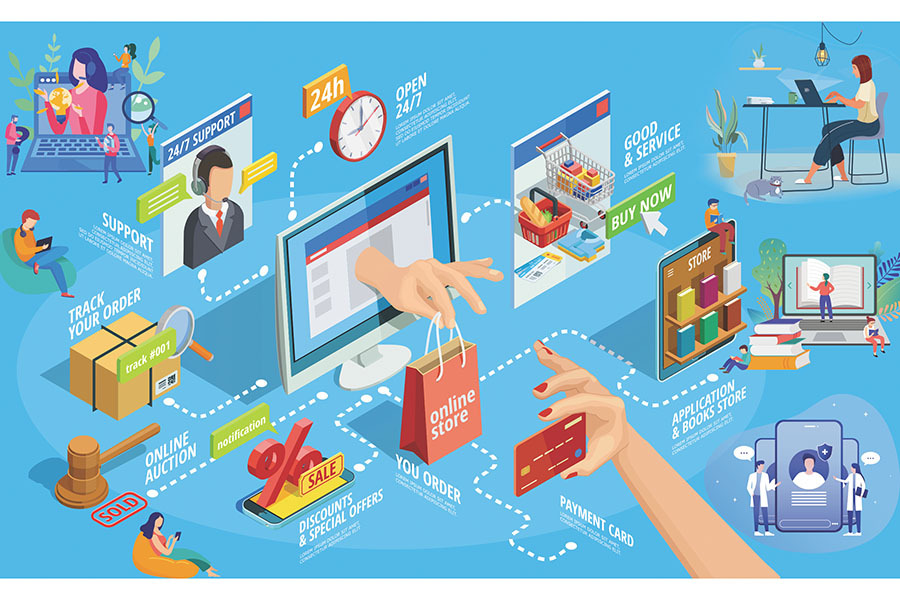
In the wake of the Covid-19 pandemic, the Indian education system has gone through a fundamental shift in how education is delivered and consumed. As India adapted to newer ways of imparting education which has challenged years of classroom learning for about 32 crore young learners across India.
What is Digital Education
Digital Education is a technique or method of learning which is accompanied by technology and new digital devices/tools, whether it be face-to-face, distance learning (asynchronous or synchronous) or blended learning. Any student can acquire knowledge and procure information from any corner across the country through this new technical sphere.
Can you imagine bidding adieu to the traditional teaching methods, instead of the chalk-duster- board teachers utilize smart digital whiteboards and students don’t rely on textbooks instead use a tablet/smartphone. Digitisation in Indian education aids in reaching students in the remotest corners of the country overriding issues such as shortage of teachers, inadequate student-teacher ratio, and insufficient teaching resources.
Challenges
In India the internet penetration rate is estimated to reach over 55 percent by the end of 2025. As of 2020 estimation only about 25 percent of Indian households have an internet facility, that number drops to 15 percent when it comes to rural households. Digital education is much more than just videos of lectures on blackboards by teachers on the internet. It is about pertinent platforms, appropriate technology, applicable tools, interactivity, curation, content, and a lot more. Digital platforms have created newer learning opportunities, it has also brought forth the fact that the internet is not an organic equaliser, there are serious issues related to access, devices, content, curation, teachers, training, testing, exams, grades, funding, facilities, salaries, parents, and fees.
Digital India initiatives by Government of India
Ministry of Human Resources Development (MHRD) – Initiatives for Digital Education
PM eVidya is a comprehensive initiative announced on May 17, 2020, which aims to unify all efforts related to digital/online/on-air education to enable equitable multi-mode access to education. It envisions to benefit nearly 25 crore school going children across the country.
DIKSHA (Digital Infrastructure for Knowledge Sharing)
DIKSHA is the ‘one nation; one digital platform’ for school education in India, launched in 2017. DIKSHA is a national platform accessible through mobile application and web portal available for schools in all states available for grades from 1 to 12. E-content will be provided which is aligned with the curriculum. Large number of case studies and solutions will be provided with the help of Energised Textbooks (ETB’s) which are QR coded.
Swayam Prabha – TV Channels
High quality educational programmes are telecasted with a total of 32 channels to meet the requirements offering both higher education and school education. This mode of education is for people who do not have access to education through internet.
Way forward
Education being the forefront of the national agenda, the government rolled out a new National Education Policy (NEP) in 2020 that puts emphasis on digitisation besides the use of technology in education. To take quality education to all parts of the country, especially the Tier-2 and 3 cities and villages, NEP emphasis on edtech for furthering education.
In 2020 we witnessed an era of lifted restrictions in the field of education. Earlier Indian universities and colleges, which were not permitted to offer more than 20 percent of a degree online, are now offering online learning to widen access to higher education and raise the profile of Indian institutions globally.
Educational institutions and bodies like AIMA, IIMs, ISB, Ashoka University, Amity University, and Christ University have already taken their examination process online. Making way for credible, secure, and scalable remote/online exams, customised assessments to online proctoring, and certification with the help of digital platforms.
Numerous edtech platforms and companies have surfaced, offering learning management resources, including hybrid learning, 3D and DIY kits and AI-based experiential and interactive learning, to provide an unrivalled experience.